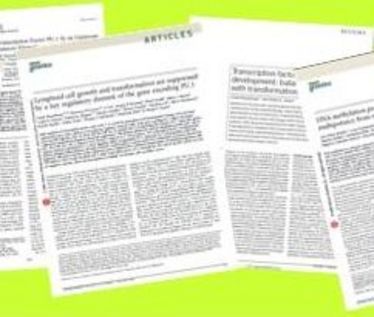Two new studies from the Laboratory of Molecular Stem Cell Biology published in The EMBO Journal:
Lineage plasticity in cancer can cause therapy resistance and poor patient survival. Therefore, understanding how lineage plasticity originates is important for the development of new clinical therapies. Acute leukemia is a particularly suitable disease for studying lineage plasticity because in up to 20% of cases, cells either express markers of several lineages or can switch lineage identity. Although the underlying cellular origin remains poorly defined, it was generally assumed that these cases arise from malignant transformation of multi-potent hematopoietic stem cells. However, a new study published in The EMBO Journal (Riemke et al. 2016), which was led by researchers from the IMTB Laboratory of Molecular Stem Cell Biology, could recently demonstrate an alternative mechanism in which plasticity in leukemia can result from instable lineage identity inherited from differentiating progenitor cells. Collectively, this study suggests the thymus as a source for myeloid leukemia and proposes leukemic plasticity as a driving mechanism. Moreover, the results reveal a pathway-directed therapy option against thymus-derived myeloid leukemogenesis and propose a model in which dynamic progenitor differentiation states shape unique neoplastic identities and therapy responses.In a second paper recently published in The EMBO Journal (Hagemeyer et al. 2016), led by Professor Marco Prinz from the Institute of Neuropathology at the University of Freiburg, Germany, the Laboratory of Molecular Stem Cell Biology has contributed to provide new cellular and molecular insights into the origin and developmental pathways of tissue macrophages. The investigators used an inducible fate-mapping system together with large-scale transcriptional profiling to build computational models for tissue macrophage ontology determination, and could identify Irf8 as an important transcription factor for macrophage maturation.


